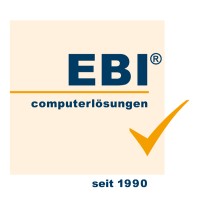Postdoctoral Researcher, SCEPTIC-Position 1
Stellenbeschreibung:
About us
The Institute of Social Sciences at the University of Oldenburg focuses on interdisciplinary research and teaching in sociology and political science. Key areas include social inequality, political participation, societal transformation, and the analysis of contemporary societies using both quantitative and qualitative methods.
The University of Oldenburg is receiving 22.5 million euros from the Ministry of Science and Culture (MWK) and the Volkswagen Foundation from the “Strategic Development of Potential” funding line to sharpen its profile and strengthen its national and international competitiveness through the project "A Programme for Excellence. Developing Strengths and Building Potentials by Interdisciplinary and International Networking". Among other things, this is to be achieved through consistent networking across national and international borders, the promotion of students and scientists in early career phases and the strengthening of interdisciplinary research priorities in socially relevant and innovative areas.
Your tasks
- Conduct collaborative and independent research as part of the SCEPTIC research group
- Develop and implement own research ideas within the project’s thematic focus
- Collaborate with team members and contribute to joint publications and funding applications
- Publish research results in international peer-reviewed journals
- Present findings at (inter‑national) conferences and workshops
- Co‑organise internal coordination meetings and external networking events
- Contribute to project management, i.e. administrative and organisational tasks
- Represent the project in committees and internal reporting
- Supervise student assistants
- Engage in academic teaching, such as acquiring or further developing university‑level teaching competencies as part of developing a "habilitation‑equivalent" academic profile
Your profile
Requirements
- A completed scientific university degree (diploma/master) and a doctorate in a relevant field (political science/political theory, sociology/social theory, philosophy, communication, computer science, or related areas), completed or to be completed by the time of appointment
- Strong interest in the interdisciplinary research themes of the SCEPTIC research group
- Sound knowledge and experience in empirical research and quantitative methods and programming in R, Python, or similar tools; experience with computational text analysis, natural language processing (NLP), or related techniques
- Sound knowledge of theoretical foci relevant to the research group, for example theories/philosophies of digital (dis‑)information, affect theory, theories of (algorithmic) polarisation and radicalisation, theories of digital publics/digital networks, theories of information environments/ecologies, or theories of (dis‑)trust (or similar)
- A theory‑informed approach to the study of democracy, political legitimacy, trust
- Strong interest in digital trace data, political communication, or algorithmically mediated information environments
- Successfully published or about to be published peer‑reviewed articles in international journals in research areas of the research group
- Very good command of written and spoken English; good written and oral communication skills and a strong ability to present complex issues in a comprehensible way
- Basic knowledge of German and/or the willingness to improve these skills
- A self‑reliant, goal‑and‑result‑oriented work attitude, excellent coordination skills and strong ability to work in a team
The ideal candidate(s) hold(s) the following credentials
- Experience in working at the intersection of theory and empirical evaluations is highly desirable and considered beneficial
- Strong interest in working in an interdisciplinary environment and in cooperating with related disciplines
- Willingness to travel for collaboration and conferences (nationally and internationally)
- Experience in applying for or managing third‑party funding is an advantage
- Gender competencies and diversity awareness
We offer
- Strong involvement in a dynamic and interdisciplinary project team that is highly visible in related international research and science communication
- Autonomous research and the option to shape the project’s research agenda
- Stimulating and supportive work environment with close and intensive support for the completion of a "habilitation‑equivalent"
- Working in a research group with projects of high social and political relevance and close integration into existing collaborations with national and international partners
- Working at a university with a vibrant national and international academic environment
- Range of further training opportunities and individual support for professional and personal development for academic or non‑academic career development
- Regular participation in international research conferences is encouraged and supported
- Research stays abroad are supported if desired
- Flexible working hours and opportunities for remote work in a pleasant working environment
that also attaches great importance to the compatibility of family and career, supported by comprehensive mobile and teleworking options (up to 80%) - Support for applying to third‑party funding
Our standards
The University of Oldenburg is dedicated to increase the percentage of female employees in the field of science. Therefore, female candidates are strongly encouraged to apply. In accordance to § 21 Section 3 NHG, female candidates with equal qualifications will be preferentially considered. Applicants with disabilities will be given preference in case of equal qualification.
Further information
The SCEPTIC Research group is jointly led by Prof. Dr. Marius Sältzer (Assistant Professor for Digital Social Science, Institute for Social Sciences), Prof. Dr. Anna‑Verena Nosthoff (Assistant Professor for Digital Ethics, Institute for Philosophy), Prof. Dr. Gundula Zoch (Assistant Professor for Sociology of Social Inequalities, Institute for Social Sciences), and Prof. Dr. Andreas Peter (Professor for Safety‑Security‑Interaction, Department of Computer Science).
The fixed‑term contract is limited to 4 years (with the possibility of a 1‑year extension following a positive overall project evaluation and subject to available funding).
#J-18808-LjbffrStelleninformationen
Typ:
VollzeitArbeitsmodell:
Vor OrtKategorie:
Erfahrung:
2+ yearsArbeitsverhältnis:
AngestelltVeröffentlichungsdatum:
06 Nov 2025Standort:
WorkFromHome
KI Suchagent

Möchtest über ähnliche Jobs informiert werden? Dann beauftrage jetzt den Fuchsjobs KI Suchagenten!
ähnliche Jobs







